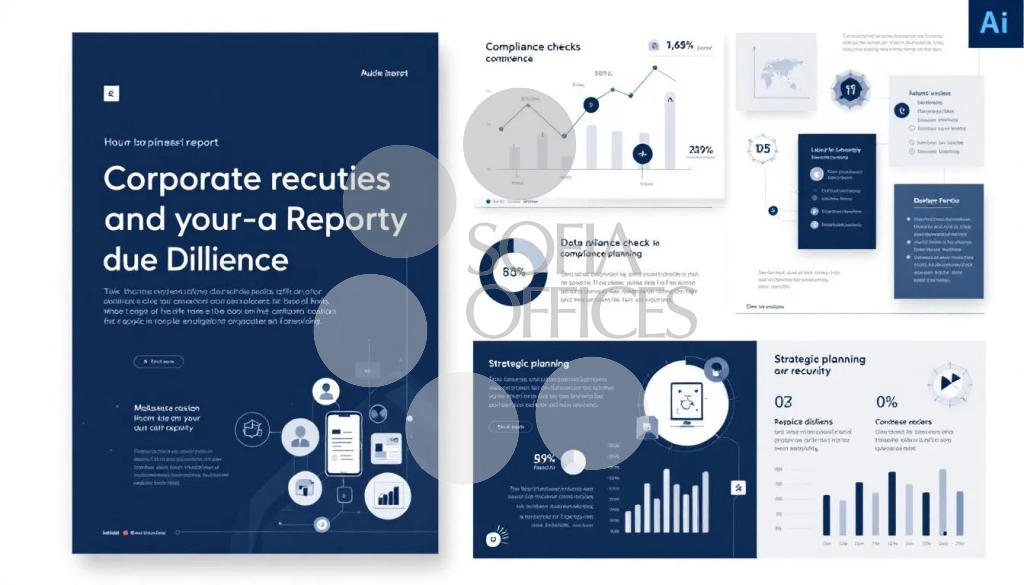Due Diligence Services in Bulgaria: Your Guide to Smart Business Decisions
Looking to invest in Bulgaria? Due diligence services are essential to uncover risks and ensure compliance.
This guide explains everything about due diligence services in Bulgaria.
Key Takeaways
- Due diligence in Bulgaria is essential for investors to navigate local regulations and mitigate risks in business transactions.
- Key components include financial, legal, operational, and risk assessments that provide comprehensive insights into a target company’s viability.
- Engaging professional due diligence services enhances evaluation, identifies potential issues, and supports informed decision-making during mergers and acquisitions.
Understanding Due Diligence in Bulgaria

Due diligence in Bulgaria is crucial for investors to mitigate potential risks and comply with local laws before engaging in business transactions.
Whether exploring opportunities in manufacturing, logistics, or other sectors, understanding the local regulatory landscape is vital.
Key Components of Due Diligence Services
Due diligence services cover a broad spectrum of evaluations aimed at uncovering crucial business details. These typically include:
- Financial factors
- Legal factors
- Operational factors
- Risk-related factors
Delving into these aspects helps buyers surface critical, previously hidden details about the financial, contractual, and operational facets of the seller company.
Financial Evaluation
Financial evaluation verifies a company’s financial statements and assesses its economic viability. The three primary financial statements balance sheet,
income statement, and cash flow statement offer distinct insights into performance. Ratio analysis (e.g., profit margins, return on equity)
and modeling help confirm the accuracy of a seller’s claims and forecast future performance, supporting informed valuation and decision-making.
Legal Compliance
Legal compliance ensures adherence to relevant laws and regulations. Thorough checks substantially reduce legal risks in Bulgarian transactions especially property deals by
verifying ownership records, identifying legal disputes, and confirming compliance with zoning and environmental rules.
This clarifies the legal structure and potential liabilities to ensure a sound investment.
Operational Review
Operational review assesses internal processes and efficiencies to identify improvement areas. Interviews with key personnel, evaluation of supplier management and
sourcing, and appraisal of the business model reveal capabilities and potential bottlenecks, informing post-transaction integration and performance.
Risk Assessment
Risk assessment evaluates potential threats that could impact performance and reputation. Detailed analysis can uncover hidden liabilities and operational challenges.
AI and Machine Learning can analyze historical data to identify patterns and risks, enhancing the accuracy and speed of evaluations.
The Role of Due Diligence in Mergers and Acquisitions

Initiating due diligence early in the M&A process allows timely identification of issues affecting negotiations. Key risks include overvaluation and failure to capture
expected synergies. Integration can introduce security vulnerabilities across IT systems, and unexpected legal or regulatory costs may arise.
Engaging internal teams with external advisors ensures a comprehensive review of financial and operational health and helps identify strategic synergies.
Preparing for Due Diligence
- Organize financial documents (income statements, balance sheets, cash flows) to facilitate a smooth process.
- Create a structured repository for transaction-related documents for efficient access and retrieval.
- Establish clear goals for the due diligence project to align resources and strategy with business objectives.
Findings are compiled into a comprehensive report to support decision-making. For instance, alongside the due diligence for BMF Port Burgas, a business plan recommended enhancements to support the investment decision.
Choosing the Right Due Diligence Team
Select individuals with a proven background in due diligence and relevant industry expertise. A diverse skill set strengthens evaluations.
Engaging local legal experts is crucial for navigating Bulgaria’s regulatory environment and business practices.
Leveraging Technology in Due Diligence
Technology and data analytics enhance decision-making and efficiency. Automated tools accelerate collection of financial and legal records,
while digital document management and Virtual Data Rooms (VDRs) enable secure storage and controlled sharing.
Real-time reporting ensures stakeholders access the most current data for timely decisions.
Case Studies of Successful Due Diligence in Bulgaria

The investment by the Three Seas Initiative Investment Fund S.A. in BMF Port Burgas was finalized in summer 2022 following extensive due diligence,
site visits, and management consultations. Comprehensive insights into operations and future potential supported a well-informed investment decision.
Benefits of Professional Due Diligence Services
- Streamlines reviews without disrupting normal operations.
- Integrates due diligence within M&A to increase transaction success.
- Provides insights into cultural fit, crucial for post-merger integration.
Summary
Due diligence is critical for making informed, strategic business decisions. Assessing financial health, legal compliance,
operational efficiency, and risks provides invaluable insights. By engaging professionals and leveraging technology,
companies can streamline evaluations and ensure thorough, accurate outcomes.
Investing in due diligence is investing in your future success enabling confident navigation of complex transactions and more secure, profitable investments.
Frequently Asked Questions
Why is due diligence important in Bulgaria?
It enables investors to identify risks and ensure compliance with local laws, minimizing transaction risks and supporting informed decisions.
What are the key components of due diligence services?
Evaluations of financial, legal, operational, and risk-related factors that reveal critical insights about the target company.
How does financial evaluation contribute to due diligence?
It verifies financial statements and economic viability, enabling a clear view of performance and supporting accurate valuation and decision-making.
What role does legal compliance play in due diligence?
It ensures adherence to relevant laws and regulations, mitigating legal risks and protecting business integrity during transactions.
How can technology enhance the due diligence process?
Automation, secure digital document management, VDRs, and real-time reporting streamline data handling and improve efficiency and reliability.